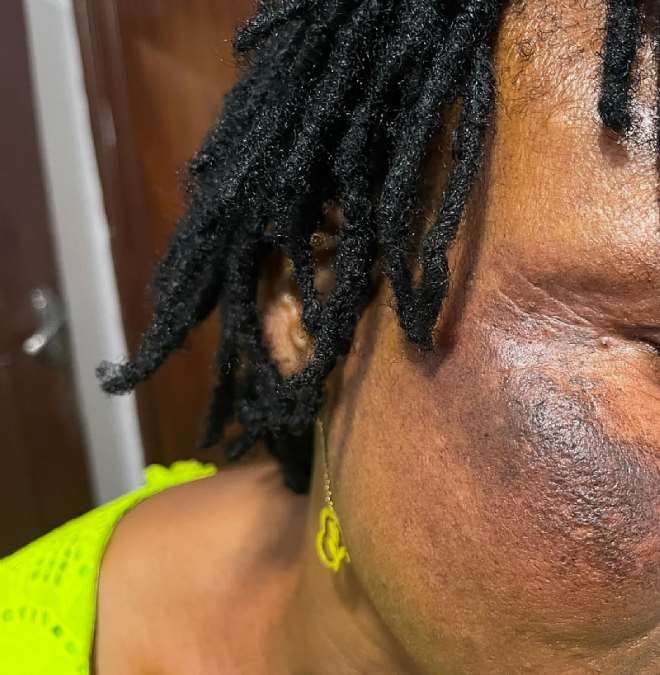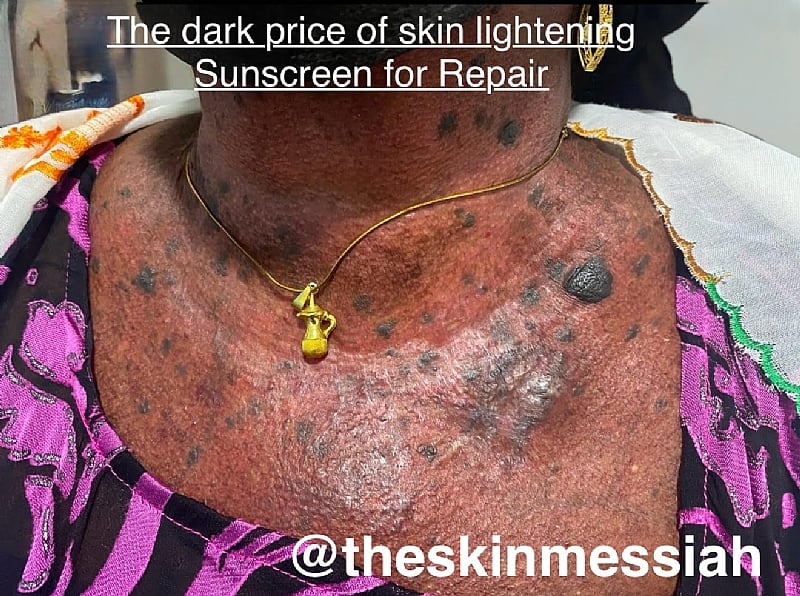Dr. Kofi Ansah Brifo, Resident Dermatologist at Osu Rabito Clinic in Accra, has sounded the alarm on a dangerous and deepening crisis affecting the self-image and health of young Ghanaian women.
Speaking during the weekly health education platform hosted by Communication for Development and Advocacy Consult (CDA Consult), Dr. Brifo painted a stark picture of how social and cultural pressures are shaping harmful beauty standards.
He explained that a psychosocial conflict now defines the lives of many young women: “On Instagram, the algorithm favours light-skinned influencers with hourglass figures. In the home, elders still say, ‘W’abon wo ho,’ if you lose weight. This dual pressure creates body dysmorphia, anxiety, and depression. Girls are bleaching not just their faces, but their confidence. They are adding curves with pills and injections, not realising they’re subtracting years from their lives. What was once a choice of cosmetic enhancement has become a cultural obligation.”
Delivering his address on the theme “Bleaching, Bulking, and the Burden of Beauty: A Ghanaian Epidermal Tragedy”, Dr. Brifo observed that in Ghana, beauty ideals are deeply entrenched in societal perceptions of skin tone and body shape.
“In Ghana, the skin is not just an organ—it’s a statement. And the face? That is your presidential campaign poster. Our society has long equated beauty with fairness, fullness, and folds—yes, the more folds around the neck, the more affluent you appeared in the Ghana of old. A curvy figure? Presidential. Light skin? Ministerial. Plump cheeks? You just made Cabinet,” he quipped, before cautioning that these outdated ideals have now mutated into a modern-day public health emergency.
He called for urgent regulatory action: “It’s time to treat this for what it is: a public health emergency. We need a stricter cosmetic regulation and import controls.”
He also urged the Food and Drugs Authority (FDA) to intensify efforts to stop the sale of unauthorized skin-lightening creams on the streets.
In addition, Dr. Brifo proposed a multi-pronged solution to tackle the issue, including a nationwide awareness campaign targeting schools and social media users, and holding influencers accountable for the standards they promote.
“Celebrity accountability—if you influence, then influence responsibly,” he stressed.
He further advocated for a ban on harmful cosmetic products and a real-time surveillance system to crack down on underground distribution networks.
Most importantly, Dr. Brifo called for a cultural redefinition of beauty: “Let’s teach our girls that melanin isn’t a mistake—it’s a masterpiece. That health is wealth, not fat folds. That true elegance isn’t in bleaching but in boldness, brains, and being at peace with yourself. Our skin carries not only melanin but memory—of how we have treated it, how we have felt about ourselves, and how we have passed that self-image onto the next generation.”
Tracing the roots of the current crisis, he recalled the liberalisation of Ghana’s economy in the late ’80s and ’90s, which also opened the floodgates to unregulated beauty products. He cited infamous examples like “Abidjan Crème” and the oral steroid Dexacortin, which were widely misused to lighten skin and enhance body curves.
These harmful trends, Dr. Brifo noted, have had far-reaching consequences: Skin thinning, metabolic disorders, and irreversible conditions like exogenous ochronosis are just a few of the devastating effects women now suffer—all in pursuit of an aesthetic standard fuelled by societal pressure and social media algorithms.
Drawing a powerful parallel to politics, Dr. Brifo remarked that Ghana’s obsession with appearances mirrors the country’s penchant for short-term solutions over sustainable planning.
“Just like some governments have glossed over infrastructure rot with a coat of political paint, so too do people gloss over the damage done to their skin barrier—all in the name of societal applause.”
He concluded with a stark warning: “Let us not allow a misguided beauty trend to become Ghana’s dermatological dumsor—beautiful in the day, damaged in the dark.”




